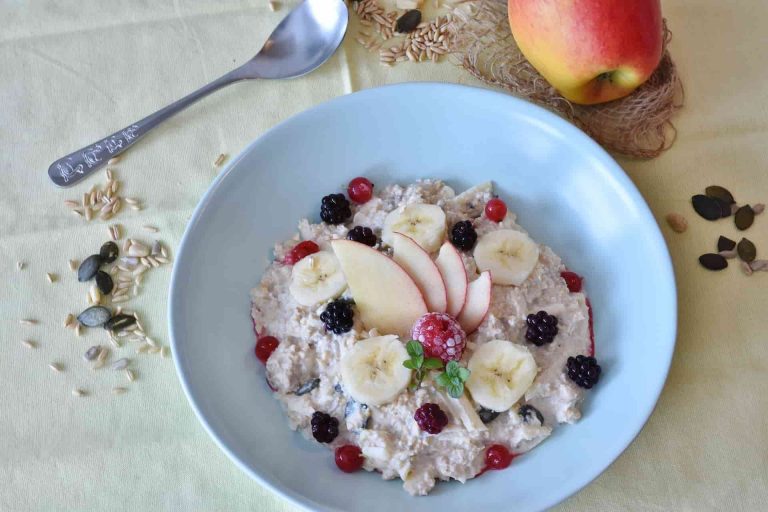10 Facts About 10 Most Popular Nuts everyone Should Know
Although they are high in fat and have long been decried as calorie bombs, their reputation has changed significantly in recent years: nuts are considered small powerhouses and health miracles. Today we introduce you to the 10 most popular varieties and explain what makes them so special and why they should be part of every menu.
1. Cashew nuts
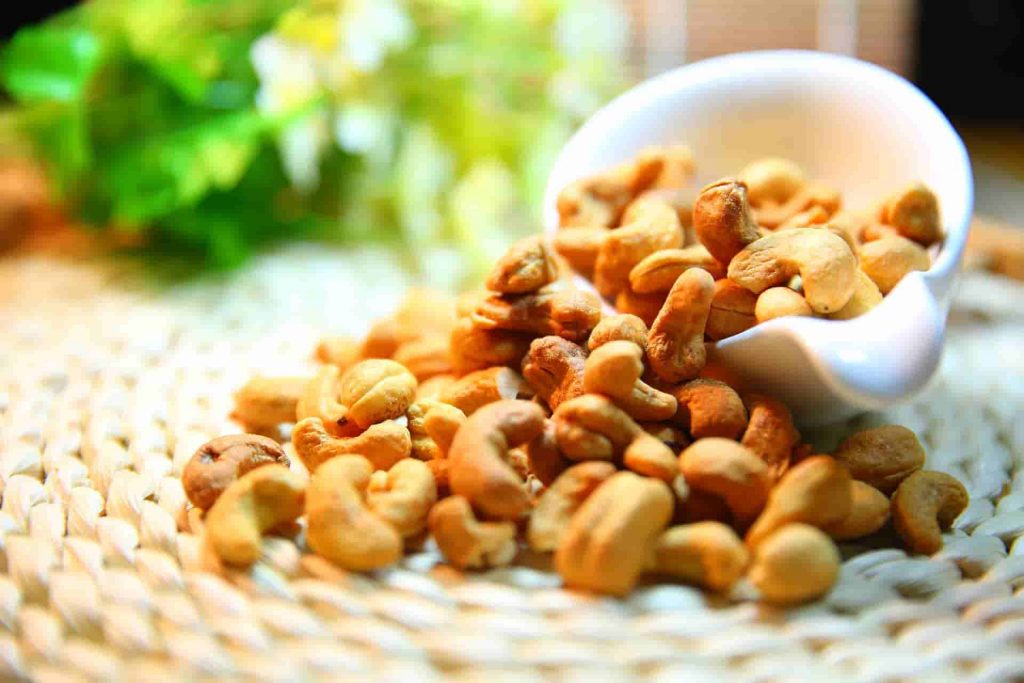
Cashew nuts – delicious, healthy, what more could you want? They originally come from South America, contain more filling carbohydrates than many other nuts and impress with their very mild, slightly sweet taste. With only 42 grams of fat per 100 grams, cashews are among the comparatively low-fat nuts.
They contain a lot of valuable protein and, thanks to 270 milligrams of magnesium per 100 grams, are considered perfect food for the nerves. Cashew nuts also contain tryptophan, which supports our brain in the production of the “happy hormone” serotonin. If you urgently need a good mood, cashew nuts are welcome!
2. Peanuts

They originally come from Peru and Brazil and for many people are parts of a perfect evening watching TV: In addition to B vitamins and the important minerals fluorine and iodine, peanuts also provide plenty of protein. Since they consist of about half of fat, they are also very high in calories. So don’t overdo it when snacking.
Resource
8 slimming products in autumn
The linoleic acid contained in peanuts is said to support heart health, the B vitamins also have a positive effect on the energy metabolism and help with cell renewal.
3. Hazelnuts

Hazelnuts are not just for fluffy squirrels – they are also delicious for nut fans. The oldest type of nut in Europe is rich in high-quality protein, healthy unsaturated fatty acids and vitamin E, which avoids harmful substances from the body and protects our cells.
The lecithin it contains also keeps the brain busy. The right diet for thinkers! By the way: Even many allergy sufferers can tolerate hazelnuts if they have only been heated thoroughly.
4. Coconut
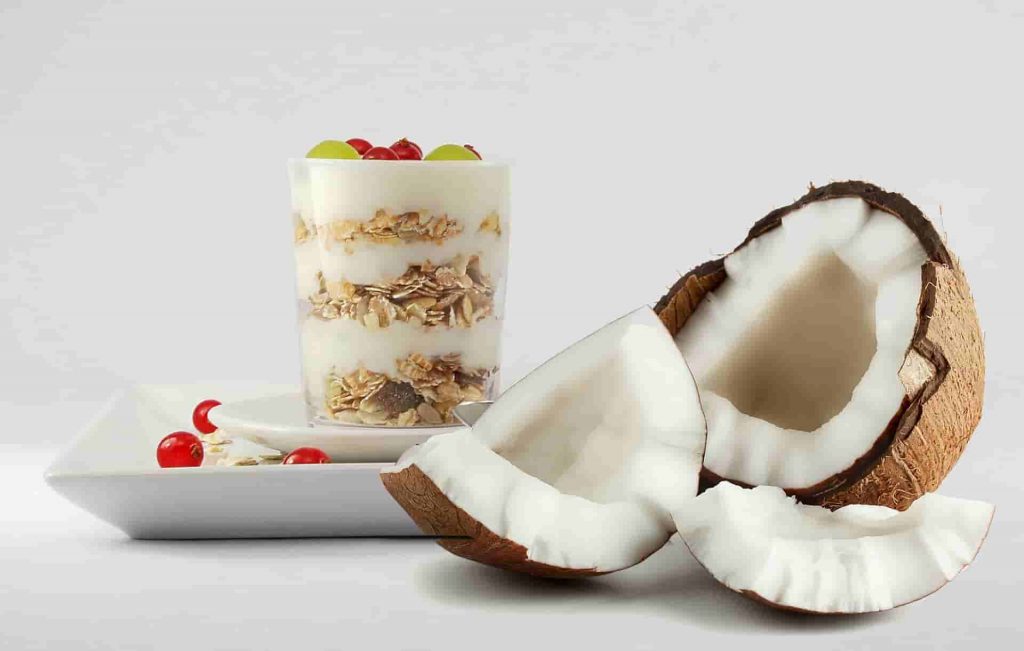
This delicacy should not be missing, especially on a beach holiday: coconuts are extremely popular in the summer months, although they are not that easy to crack. The stone fruits can weigh up to 2.5 kilos and, due to their high water content, have a significantly lower fat content than many other types of nuts.
In addition to potassium, copper and iron, coconuts also provide important unsaturated fatty acids.
5. Macadamia

Anyone who has tasted the nuts, which originally came from Australia, will be full of praise! It may be that this is due to the high fat content of the macadamia nuts. However, this is “good fat” that has a positive effect on our health. Studies have shown that consuming around ten macadamia nuts a day can lower blood cholesterol levels by up to 12 percent.
Macadamia nuts are also rich in protein, magnesium, phosphorus, calcium and B vitamins, which are good for nerves and bones.
6. Almonds
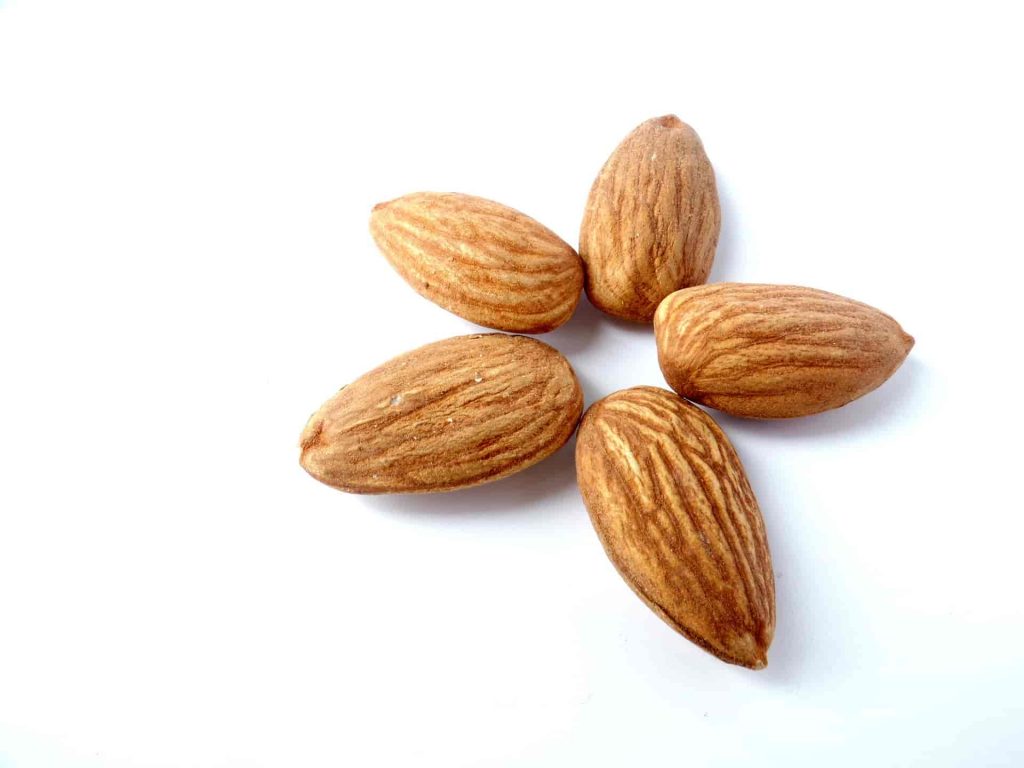
They are extremely tasty and are one of the favorite ingredients of many vegetarian cooks: in addition to high-quality fat, almonds contain a lot of filling fiber and protein. It is known from studies that the energy contained in the nuclei is apparently only partially used by the body. The reason is said to be the fiber content or the stability of the almond cell walls, which encapsulate nutrients and make them inaccessible for digestion. According to this finding, the number of calories that almonds provide was corrected in 2012 and reduced by around 20 percent.
Apart from that, almonds are among the top suppliers of vitamin E , beta-carotene and the group of B vitamins. Good to know: Almonds are not tolerated by people who are hypersensitive to salicylic acid. They contain more of this natural preservative than any other nut. If you want to know more about the health benefits, learn more here.
7. Brazil nuts
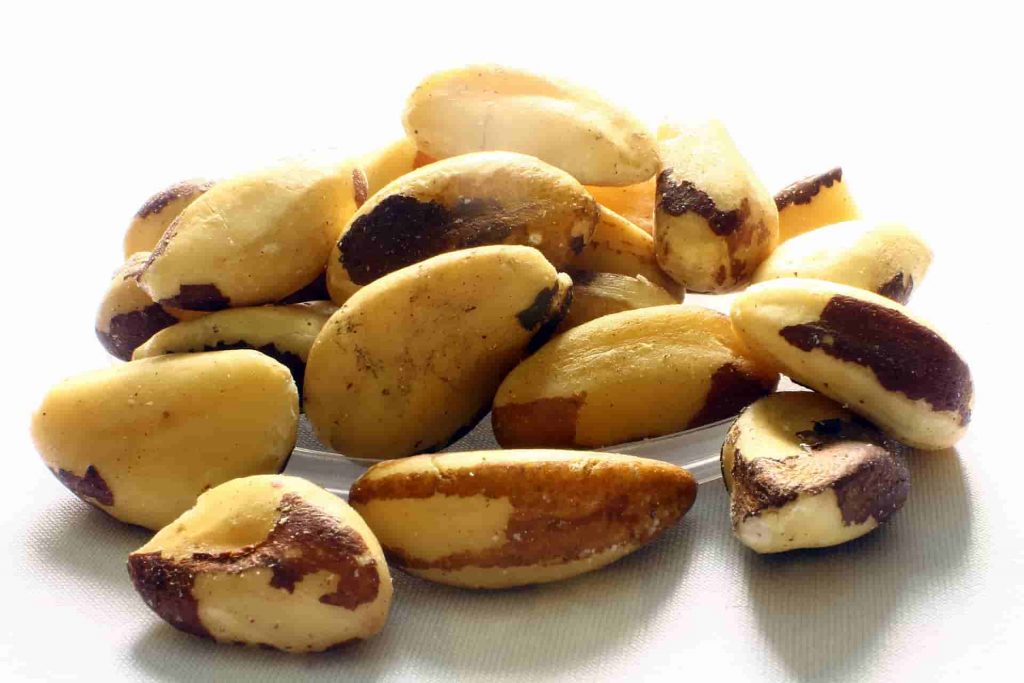
Have you tried it before? Brazil nuts come from Brazil, have a pleasantly oily, slightly almond-like and sweet aroma and score with large amounts of valuable protein. Nutrition experts praise the Brazil nut as the greatest natural source of selenium. The trace element is part of important enzymes and helps our organism to fight off cell-damaging free radicals.
Apart from that, the fat content must also be addressed at this point: Brazil nuts are one of the types of nuts with a particularly high fat content. But the same applies here: When consumed in moderation, Brazil nuts are real health miracles. The many unsaturated fatty acids it contains have a positive effect on the heart, blood vessels and circulation.
8. Pecans
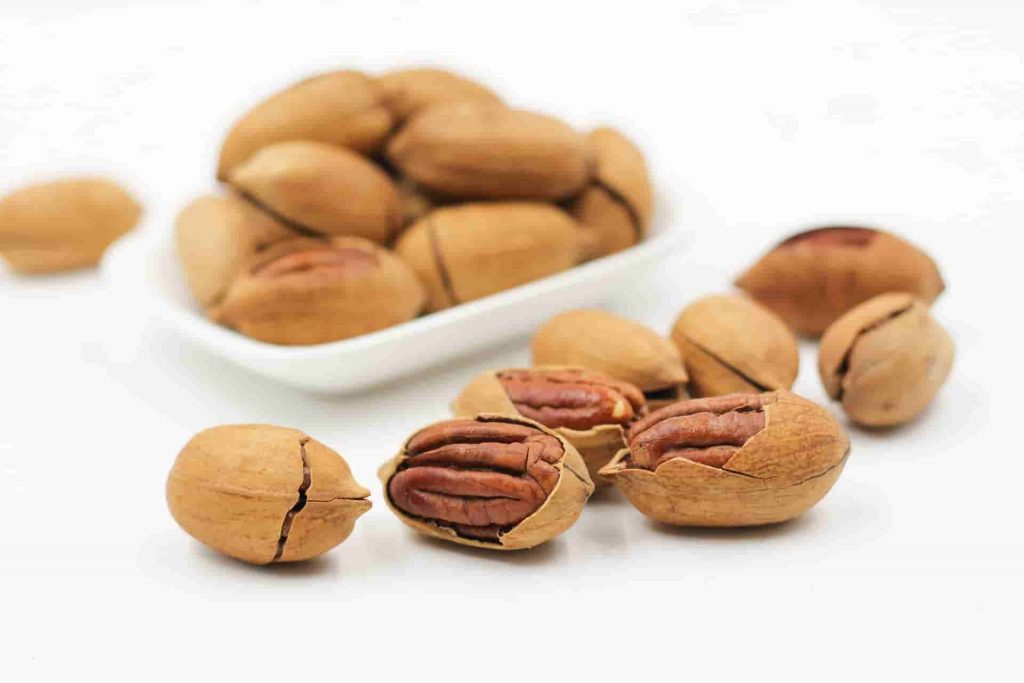
Protein, carbohydrates and unsaturated fatty acids – pecans are not only visually reminiscent of walnuts; their ingredients are also very similar. The pecan is native to North America. It tastes slightly sweet and is mostly used in confectionery and baked goods in this country.
The vitamin A contained in the pecan protects our eyes; Calcium, potassium, magnesium and iron ensure that our bones remain healthy and the metabolism remains active.
9. Pistachios
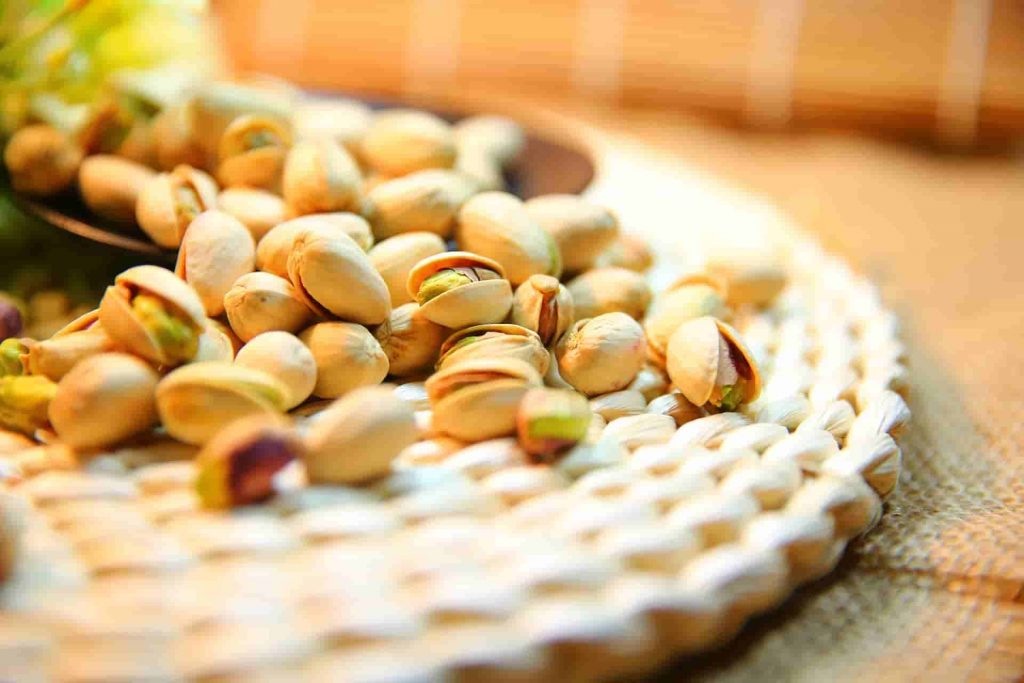
Strictly speaking, pistachios are a stone fruit and are used in numerous foods – whether ground in ice or chopped in mortadella. In the Arab world, the small green kernels are considered a special delicacy, which is not particularly surprising when you know that pistachios originally come from Afghanistan and Persia and that they also have a number of health benefits.
They also contain large amounts of valuable unsaturated fatty acids, are considered excellent suppliers of iron and can also score points with fiber and vitamin B. Accordingly, their reputation is excellent: Pistachios are said to lower cholesterol and strengthen bones and teeth .
10. Walnuts
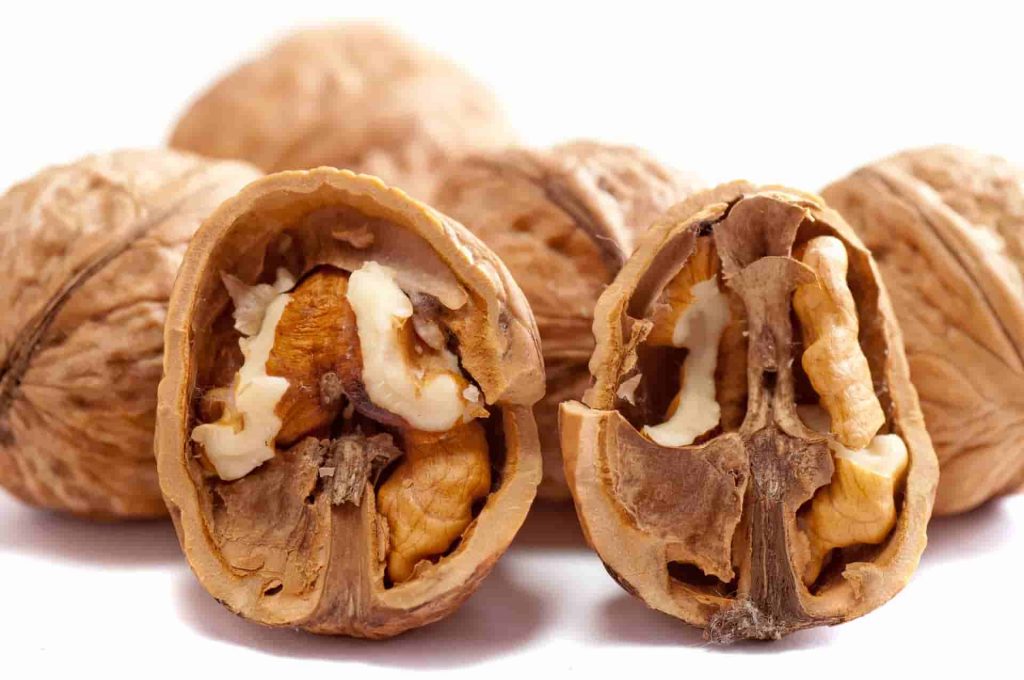
They too originally come from Persia: walnuts are full of nutrients. Just 30 grams cover the daily requirement for linoleic acid, a polyunsaturated fatty acid that is indispensable for the body. In addition, walnuts provide a lot of protein and vitamin E, which helps prevent disorders in fat metabolism.
A study by the University of Texas also showed that the walnut is also an excellent source of the hormone melatonin. The latter is said to have an antioxidant effect and once again protect our cardiovascular system. But be careful: the walnut is also very rich in fat. However, there is nothing wrong with consuming it when consumed in moderation.
Knowledge to take away
Nuts not only taste delicious, they also have a positive effect on our body and health. Above all, nuts are excellent sources of protein, fiber and unsaturated fatty acids.
Although nuts are usually not particularly low in fat, they do contain important A, B and E vitamins. These vitamins are important for protecting cells and eyes and have a positive effect on energy metabolism.
In addition, nuts are essential for a sufficient supply of magnesium, which is important for the nerves. They also provide the body with calcium and iron – this keeps the metabolism active and the bones healthy.



